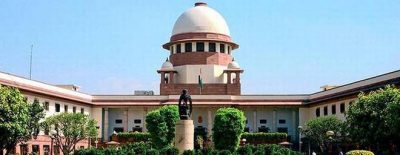Anti-defection Law 13/05/2019 – Posted in: Daily News
Anti-defection Law
For: Preliminary & Mains
Topics covered: Anti-defecation law (10th schedule)
News Flash
The Supreme Court has stayed proceedings initiated by Tamil Nadu Assembly Speaker for disqualification of some MLAs for “anti-party activities”.
Anti-Defecation Law
- Tenth Schedule of the Constitution (better known as the anti-defection law) was inserted in the Constitution in 1985.
- Articles 102 (2) and 191 (2) deals with anti-defection.
- The law applies to both Parliament and state assemblies.
- It sets out the procedure by which legislators might be disqualified on grounds of defecation by the Presiding Officer of a legislature based on a petition by some other individual/member from the House.
- A legislator is deemed to have defected if he either voluntarily gives up the membership of his party or disobeys the directives of the party leadership on a vote.
Under Anti-Defection Act, an elected member of a party can be disqualified on two grounds –
- If he voluntarily gives up his membership.
- He votes or abstains from voting in the House, contrary to his party’s direction and without obtaining prior permission.
Another condition is that his abstaining the voting should not be overlooked by his party within 15 days of such incident.
According to the anti-defection law, at least two-thirds of the members of a party have to be in favour of a ‘merger’ for it to possess validity in the eyes of the law.
Exceptions under the Law
- If a complete political party merges with another political party.
- When a new political party is created by the elected members of one party.
- If the party members don’t accept the merger between the two parties and opts to perform as a separate group from the time of such a merger.
Speaker or the chairman of the house is the authority to decide on defection cases.
Is there a time limit within which the Presiding Officer has to decide?
The law does not specify a time-period for the Presiding Officer to decide on a disqualification plea. Given that courts can intervene only after the Presiding Officer has decided on the matter, the petitioner seeking disqualification has no option but to wait for this decision to be made.
Source: The Hindu
You can follow us on LinkedIn and for more updates related to UPSC IAS Preparation, Like our Facebook Page and subscribe our Diligent IAS Youtube Channel
Also Read Related Daily News

